|
New: Primary Care now open Saturdays
Your time and health are important to us. UT Health Primary Care is helping everyone feel better and get back to life quicker by offering appointments every Saturday between 8 a.m. and 5 p.m.
UT Health now offers convenient, expert health care for general and urgent concerns on Saturdays at our Medical Arts & Research Center location.
Both, new and current patients can be seen on Saturdays. Some of the conditions treated include - Asthma
- Colds, coughs and sore throats
- Cuts and minor injuries
- Earaches and headaches
- Foreign body removal
- Fevers, nausea and stomach pain
- Infections
- Rashes
- School and sports physicals
- Sprains and strains
- Urinary tract infections
UT Health Primary Care is located in the Medical Arts & Research Center, 8300 Floyd Curl Drive on the 1st floor.
We offer appointments weekdays and Saturdays from 8 a.m. to 5 p.m.
Call 210-450-9180 for an appointment.
|
 |  |
|
MyChart: Your free online health record
Can't remember the date of your next appointment? Or your last appointment? Or the name of the doctor you saw? These are all great reasons to sign up for MyChart, the secure, online portal that is free to all patients of UT Health Physicians.
UT Health Hill Country: Physical therapy and more
Whether you are recovering from a sports injury, dealing with pain or weakness, experiencing dizziness or falls, or healing from a surgery, the physical therapy team at UT Health Hill Country is here to help.
Did you know UT Health Hill Country offers a full-service physical therapy center?
Whether you are recovering from a sports injury, dealing with pain or weakness, experiencing dizziness or falls, or healing from a surgery, the physical therapy team is here to help. Our team is committed to providing quality care with expert clinical skills to help each patient achieve their individual goals. We offer a wide range of therapies for your specific needs.
Our physical therapists specialize in orthopaedics and sports medicine, manual therapy, trigger point dry needling, women's health, vestibular dysfunction and more. The therapists on our team possess doctoral degrees in physical therapy and serve as faculty members in the UT Health Department of Orthopaedics. Team members hold advanced specialties such as board certification in orthopaedics and fellowship training in manual therapy.
At UT Health, our therapists are dedicated to providing hands-on, evidenced-based treatments tailored to each unique condition or pain. You will find quality care with excellent customer service at each of our locations.
UT Health Hill Country also offers primary care, orthopaedics, podiatry, urology, and features a complete imaging center.
For more information or to make an appointment, please call 210-450-6831.
 |  |
Ask UT Health: How much water should I drink?
With high temperatures and humidity, hydration is a must to stay healthy. Our experts explain how much water you need to stay hydrated during these hot summer months.
Living in Texas brings summertime health concerns. One is how to stay hydrated. With high temperatures and humidity, hydration is a must to stay healthy. Exercising in hot conditions with minimal rehydration has been associated with reduced blood flow to muscles and heat injury, like heat stroke. The best way to check your hydration status is by checking your urine. Clear to pale yellow is ideal, but if it is dark yellow, you are dehydrated. Thirst is one of the best indicators to tell you to drink water. If you are thirsty you should start drinking water until you are no longer thirsty, and if you are exercising, that may not be enough. The body’s thirst mechanism may not last long enough after exercise to adequately hydrate the body. The question is how much should you drink on a daily basis to maintain hydration? Most people have heard that 8 glasses of 8 ounces a day is the right amount for adults, but is it? Not necessarily. A 200-pound man and a 120-pound woman have different water requirements. The best way to determine your daily water requirements is to start with your weight and multiply by 2/3 (0.67). For a 190-pound person, that would look like 190 x 2/3 = 127 ounces of water daily. The next step is to account for your activity level. For every 30 minutes you work out you would add an additional 12 ounces, so if you work out 45 minutes you would add 18 ounces of water for that day. Below is a chart to help with your calculation. Remember to adjust for daily activity. Weight | Ounces of Water Daily | 100 pounds | 67 ounces | 110 pounds | 74 ounces | 120 pounds | 80 ounces | 130 pounds | 87 ounces | 140 pounds | 94 ounces | 150 pounds | 100 ounces | 160 pounds | 107 ounces | 170 pounds | 114 ounces | 180 pounds | 121 ounces | 190 pounds | 127 ounces | 200 pounds | 134 ounces | 210 pounds | 141 ounces | 220 pounds | 148 ounces | 230 pounds | 154 ounces | 240 pounds | 161 ounces | 250 pounds | 168 ounces |
This much water may sound difficult to drink daily but there are some habits you can build to ensure you are well hydrated throughout the summer. - Drink 8 ounces of water before you go to bed and another 16 ounces when you wake up. This will add an additional 24 ounces to your daily intake.
- Drink 16 ounces of water before every meal. Studies have shown that drinking water before eating will reduce the amount of food you eat, which is helpful for weight loss as well. This habit will add 48 ounces of water a day.
- Use a specific water container to keep track of your daily intake. Some people use a gallon of water to keep track, which is 128 ounces. The container that works best for you is personal preference.
- Infuse your water with fruit or lemons to add flavor. You could also try carbonated or sparkling water to your daily intake, just make sure that it has zero calories or you may find that you are gaining weight because of your water.
Drinking water is one of the most important habits you can build into your daily routine. Blood pressure, temperature control, mood and many other bodily functions rely on water. Maintaining daily hydration is protective to your body. Severe dehydration can be deadly, especially in the upcoming summer months.
By Jason Adams, PA-C, is a physician assistant and lead provider for the Saturday primary care practice.
 |
|
 |  |
|
Meet our new providers
Learn about our new and veteran providers at UT Health Physicians.
Introducing new UT Health Physicians team members:
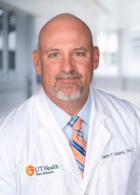
Jason Adams, PA-C
Primary Care
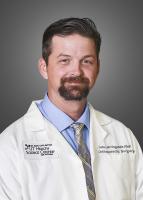 John Arringdale, FNP Orthopaedics 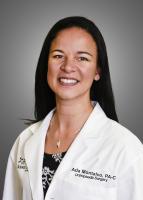
Ada Montalvo, PA-C Orthopaedics 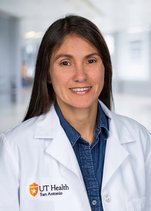
Anabel Pearson, NP Primary Care
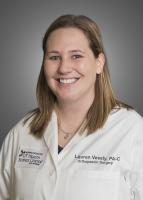
Lauren Vesely-Garza, PA-C Orthopaedics
Donna Grabowski, NP
Neurology Gabriel Magraner, M.D.
Gastroenterology Otto L. Miller, M.D. Cardiothoracic Surgery Deepak Pruthi, M.D. Urology Alexis Santangelo, GNP Neurology Celina Villanueva, O.D. Ophthalmology Corey Waldman, M.D. Ophthalmology
Weight loss surgery info session
Join us for a free educational seminar about weight loss options. Thursday, July 27th at 6:30 p.m. The meeting will be held at the UT Health Medical Arts & Research Center 8300 Floyd Curl Drive, San Antonio, 78229. 1st floor, Conference Room B. Please call 450-9200 to register or for more information.
From the UT Health library: Vitamin D
Vitamin D is an important part of strong bones and good health. It may also help with osteoporosis and high blood pressure. Most people don't know it acts as both a vitamin and a hormone. Our main sources of Vitamin D are sunlight and milk.
A Sarcoma Survivor Community – Seven Years Strong
by Vicki Shapiro
"Sarcoma. Who knew that was a major category of cancer? This first time I heard the term was when I was diagnosed with soft tissue sarcoma in April 2010."
It’s hard to find inspirational stories of soft tissue sarcoma survivors when soft tissue sarcoma accounts for only about 1 percent of all human cancers. While I didn’t know a cancer-free sarcoma survivor during my treatment, I held tight to the knowledge that my doctor had patients who overcame sarcoma. This knowledge gave me strength and hope during my fight because the statistics and stories of sarcoma don’t provide the best odds.
Today, sarcoma patients in San Antonio and the surrounding area can meet regularly with sarcoma survivors. A core group of survivors and their families meet on the second Tuesday of each month in the UT Health San Antonio Cancer Center library from 7 to 8 p.m. Newly diagnosed cancer patients and their caregivers come to ask questions and meet sarcoma survivors who are cancer-free 5+ years. Many survivors and their family members choose to keep coming during and after their treatment. Doctors, physician assistants, medical staff and other community volunteers visit and share their knowledge. Most importantly, the Sarcoma Support Group is there so no one has to fight sarcoma alone.
Here are some thoughts from sarcoma survivors and caregivers in the support group.
- Get a second opinion if your first doctor says let’s wait and see. Sarcoma is not always diagnosed correctly, sometimes leading to delays in treatment or worse. If you think you have an issue and your first doctor is not doing anything, don’t wait. In my case, an MRI with contrast was able to show the tumor and the spider-like capillaries feeding it. Others have gone through treatments for an incorrect diagnosis before learning they have sarcoma.
- Once diagnosed, start treatment immediately. The best success rates are with those survivors who can treat and remove the sarcoma before it spreads to other areas.
- It’s OK to ask for help. Sarcoma treatments can feel brutal at times. Many going through sarcoma talk about having to let go of control and learn humility in order to gracefully accept the help of others.
- Don’t obsess over reading stories on the internet. Ask your medical team questions and join a support group.
- As with other cancers, many sarcoma survivors and families find strength and hope in their faith.
- You cannot go completely back to the way you were before cancer. Your cancer fight is both a physical and an emotional journey for you and your loved ones. After the sarcoma was removed, many of us needed time and support to come to terms with our new life. I broke or fractured a bone every year for five years as I pushed too hard on my weak leg and bones brittle from chemo.
- Life can be even greater after cancer. As with many cancer survivors, we have a greater appreciation for things, and we slow down, focusing on making memories with loved ones. Many find a purpose in their cancer to help others and to do things they may have put off earlier. We are so inspired by our fellow sarcoma support group member and osteosarcoma survivor, Allan, who bicycled 7,052 miles in a four-month journey last year from San Antonio up to Canada and back, proving you can still accomplish amazing feats after having sarcoma. To learn more about Allan’s 7,000+ bicycle ride, click here.
For more information about the Sarcoma Support Group in San Antonio, please contact www.Facebook.com/Sarcomasupportgroup or email sarcomagroup@att.net or contact the UT Health San Antonio Cancer Center Wellness Center.
Vicki Shapiro is the 2015 American Society for Radiation Oncology (ASTRO) Survivor Circle Award recipient. Each year, ASTRO gives the Survivor Circle Award to a cancer survivor who has dedicated his or her time and energy to helping their local community in the city where ASTRO is holding that year’s Annual Meeting.
 |
|
 |  |
|
|